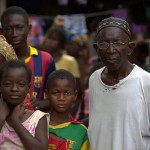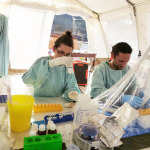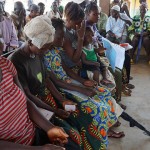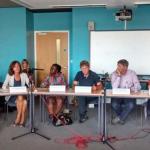It took the threat of a global health crisis to illustrate the failings of Africa’s health systems. Resilient health systems, free at the point of use, are evidently a global public good. They are essential for the provision of universal health coverage and for a prompt response to outbreaks of disease. Resilient health systems require long-term investment in the six key elements that are required for a resilient system: an adequate numbers of trained health workers; available medicines; robust health information systems, including surveillance; appropriate
Continue reading →
Christopher J. M. Whitty and colleagues explain why the United Kingdom is funding many small community centres to isolate suspected cases in Sierra Leone. The UK government is leading the international response to Ebola in Sierra Leone, providing technical, financial and logistical help. This article sets out the scientific basis for the UK government’s strategy to assist Sierra Leone’s government to reduce transmission. In addition to substantially scaling up conventional capacities at hospitals, the UK plan to help to build and support community isolation centres where
Continue reading →
This brief summarises some key considerations about food insecurity, the migration of men and youth for work and the implication these movements may have for the Ebola response. The details have been collated from suggestions and insights provided by networks of anthropologists* who work Liberia, Sierra Leone and Guinea (both in-‐country and remotely). These are general considerations that are broadly relevant to the movement of people during the dry season, but further investigation into local specificities is required. The French version of the report is
Continue reading →
Held as part of the African Studies Association conference 2014, Ebola: The Challenges united an esteemed panel of speakers to discuss ways in which academia can mobilise to support those effected by the ebola outbreak.



